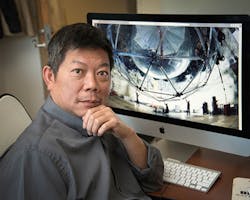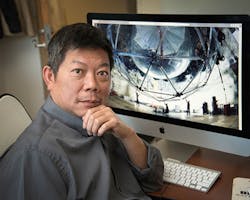Brookhaven Scientist Takes Home DPF Instrumentation Award
Brookhaven Senior Scientist Minfang Yeh
Minfang Yeh, a senior scientist at the U.S. Department of Energy’s Brookhaven National Laboratory, wins the American Physical Society’s 2021 Division of Particles and Fields (DPF) Instrumentation Award. The award honors Yeh’s work in the development and production of high-performance water-based liquid scintillators for particle physics experiments, including metal loaded scintillators for rare process experiments. This development has reportedly made possible a new generation of large detectors for studying neutrinos—elusive subatomic particles that flooded the universe just moments after the Big Bang that may offer clues to a range of fundamental physics questions.
Neutrinos carry no electrical charge, weigh very little, and interact very rarely with other matter. These tricky-to-detect particles are abundant and produced by many sources such as the sun, accelerators and nuclear reactors. Liquid scintillators allow scientists to distinguish signals produced by neutrinos from background particles entering detectors. Water-based liquid scintillators developed by Yeh and the neutrino and nuclear chemistry group he leads within Brookhaven’s Chemistry Division offer a cost-effective detection medium for large-scale physics experiments.
“Besides studying neutrinos for basic science research, we can also study neutrinos for nuclear reactor safeguards to monitor nuclear radiation from a distance,” Yeh says. “The water-based liquid scintillator we developed is for that purpose. This is just one implication of neutrino research.”
Yeh’s group has designed detectors for probes into neutrino oscillation—the particles’ ability to “shapeshift” between three forms (electron, muon and tau)—as well as dark matter searches, nuclear nonproliferation activities, double-beta decay searches and medical imaging studies.
Yeh is also leading a project to build a 30-ton water-based liquid scintillator design demonstrator to investigate the feasibility of using the medium at kiloton scale for future nonproliferation activities and particle physics experiments. The team, which includes scientists and engineers across chemistry, physics and instrumentation groups, expects testing to begin in 2023.
For more information, please visit www.science.energy.gov

